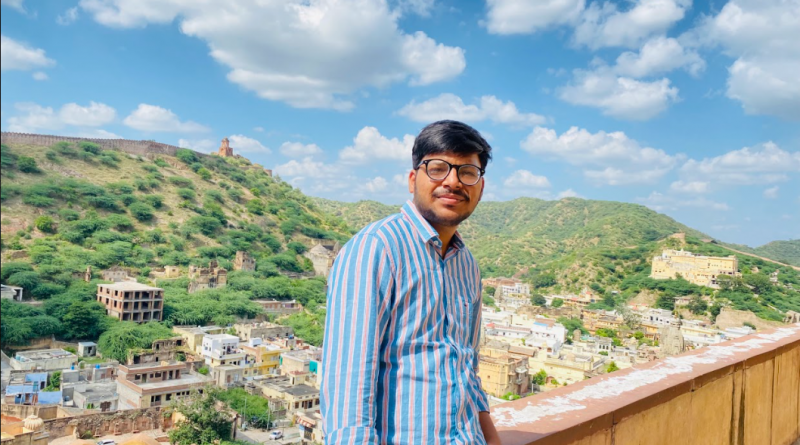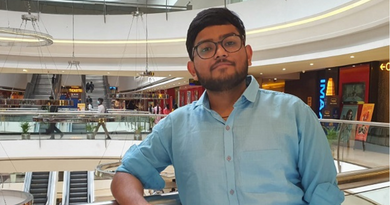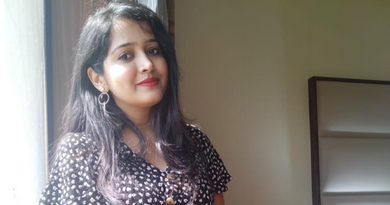Summer Internship with S M Sehgal Foundation – Nikita Agarwal from Delhi School of Economics
 Nikita Agarwal shares how her internship with S M Sehgal Foundation gave her a new perspective of life. Nikita is a student at Delhi School of Economics. Read her inspiring story in her own words.
Nikita Agarwal shares how her internship with S M Sehgal Foundation gave her a new perspective of life. Nikita is a student at Delhi School of Economics. Read her inspiring story in her own words.
When we think of people without privilege or people who are leading difficult lives, we tend to think of their existence in a world different from ours. But, very lately I realized the concept of ‘another world’ is the most hypocritical way of defining because it exists very close to us.
My internship with Sehgal Foundation this summer has helped me see things with an intensity that I had never experienced before. The foundation has been working for rural development for the last 15 years in a district called Mewat in Haryana. The irony is Haryana is one of the wealthier states of India. It is also one of the most economically prosperous states in the country. Evidently, the question of participation for rural development in one of the districts of this state sounds absurd. And to listen to, a district still operating within shackles of age old beliefs and taboos is almost alien to people operating in complete freedom and experiencing what we call the modern life. So, I began my internship with a conviction that I had read up enough and recognized the place that I was going to enter well now. However, with every village visit the convictions were dismissed. And the very first visit was very obviously the one which taught me to not expect and just give myself away to an honest experience.
The first ride to Mewat wouldn’t be different from any other car ride I thought. Turned out I was wrong. Gurgaon is the new London of the NCR region, bustling with people. People dressed in their best suits, rushing in and out of places of work and shopping malls on weekdays and weekends respectively. Gurgaon has been given an identity of its own, known for its massively huge and well-constructed buildings, you will often see people remark: “Impressive developments have been happening in the country.” On the contrary, you will be amazed to go just a few kilometres away from it and learn that the transition is crazy. The taller structures give way to smaller ones and the disappearance of residential society parks and swimming pools comes with the appearance of unkempt roads and villages struggling to secure water for basic needs. If this was my start, I was prepared for an eventful two months. So it was! I experienced child births, teaching school children, requests by women to become their daughter and stay back with them, and so much more. Succinctly, I experienced beautiful people and lovely conversations. This Internship had changed my life. The field interactions and focus group discussions with the women and young girls from the community were overwhelming and confusing. It was one of those situations when a unit from academia is transported to this whole new world because even though the bunch of problems that have been introduced to me through classroom study is really close to the ones that I concluded through conversations with the people from the villages, the latter had deeper meaning attached to it. Because only when I heard about them was when I realized their intensity. I always thought, how difficult is it to tell them things like toilets are important for a healthy life, get them constructed? But, what do you say to “there is no water here, what will we do with toilets?”
Entering their territory, learning about their problems, devising solutions and offering it to them and never seeing those people again, is a process everybody caters to. And that was something the foundation was not doing. They entered, and stayed. They recognized the problems but did not just dictate the solutions and vanish. They sat down with them, went through their problems and designed solutions with them. That’s why it took 15 years to establish whatever little that they have been able to. This is such an important lesson I learnt. Education and a city life is not enough to go there and tell them what to do unless we become a part of their lives and understand and ask them for permission to interfere and offer and help.
People of the cities are machined to think like, the village people live terrible lives. To my surprise, the picture is nowhere close to this. My conversations with the women comprised of talking about their problems. In my view, these weren’t problems, they were basic needs of survival and yet those were told to me by happy, chirpy faces. The problems seemed trivial to them. They didn’t talk about it like their world was ending, they were happy and content and knew how to make outsiders like me smile. They were beautiful people, taking care of me like I was their little girl, fanning me and making sure I ate and drank to handle walking around villages well. It seemed like I was the one with problems. I should have taken their advice of staying back with them seriously. I miss them! And now that the internship is over, I will miss going to the field.”
Editor’s note- Have you got an internship story to share? A chance to win cool Internshala T and other cash prizes by sharing your internship story here.



